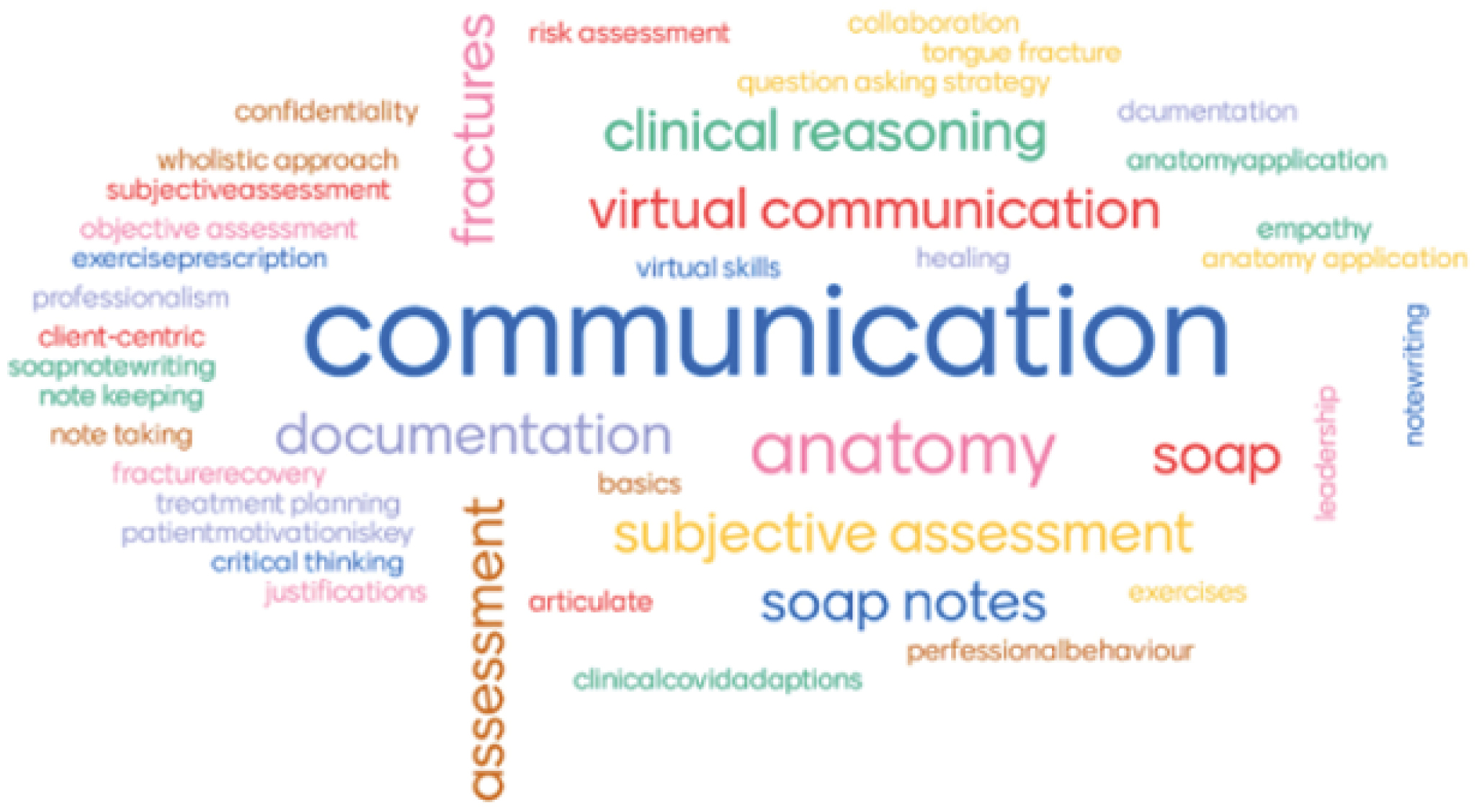
Clinical placement capacity was highly affected by the COVID-19 pandemic. Key issues in January 2021 included: international travel restrictions, high infection rates, reduced clinical educational capacity and the requirement for many individuals to self-isolate for 10 days. A contingency plan was necessary to maintain student progression, enabling them to join the workforce without delay. It was important to ensure that any placement contingency met the required module learning outcomes and standards, centring around non-discriminatory practice and confidentiality, professional and personal behaviours, communication, policies and legislation, health and safety, reflection, evidence of learning, critical incident review and personal development. Given the pressures of lockdown during the pandemic, student experience and well-being was an important consideration.
The aim of the study was to investigate whether the learning outcomes of a clinical placement experience can be met through a virtual observational placement model adopting simulation principles.
The virtual placement experience was led and facilitated by academic faculty staff from Oxford Brookes University who were trained in simulation delivery. It was delivered in partnership with clinicians from Oxford Health NHSFT, Healthshare Oxfordshire, Great Western NHSFT, Warwick Physio & Rehab, the Bosworth Clinic, Oxford University and Oxford University Hospitals NHSFT. The placement lasted 3 weeks, with a week in three core areas (Cardiorespiratory, Musculoskeletal and Neurology).
Eight pre-registration MSc physiotherapy students attended the placement from the outset, increasing to 15 students over the placement period due to student self-isolation requirements. A variety of simulated and real observational opportunities were provided, including live-streamed in-/outpatient face-to-face patient assessments/treatment appointments, community virtual follow-up appointments, pre-recorded assessments/treatment interventions and community-based virtual rehabilitation classes, and patient record keeping. Clinical reasoning discussions were delivered following each observational opportunity, using an advocacy-inquiry debriefing approach by the academic faculty [1,2]. Student assessment was equivalent to a face-to-face observational placement, including a presentation discussing the skills they had observed and developed (Figure 1). Qualitative and quantitative student and faculty feedback were collected pre- and post-placement. Identified opportunities included: (i) exposure to a variety of observational areas of practice enhances the curriculum; (ii) enhanced learning due to additional time for peer, clinician and academic facilitated debrief; (iii) enhanced student experience particularly for international students or those having to self-isolate. This clinical placement experience was highly rated by students with potential for wider implementation. The use of advocacy-inquiry debriefing and additional support provided by the academic faculty warrants further investigation to maximize student learning opportunities on clinical placement.


1.
2.